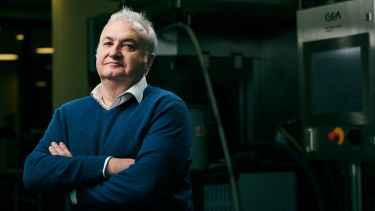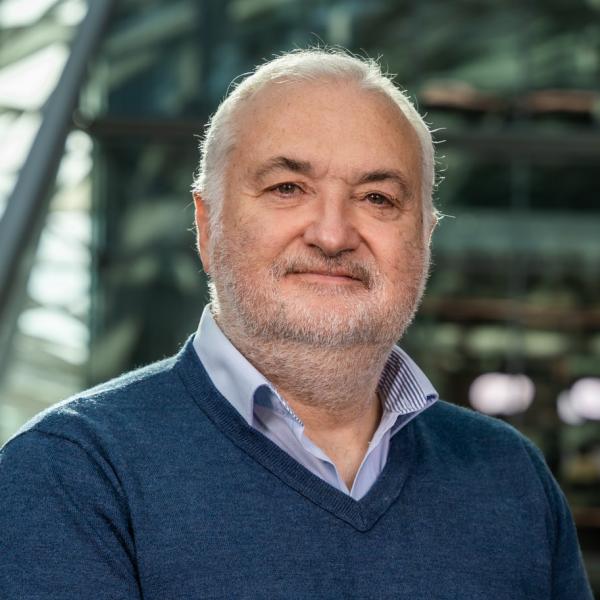Mammalian cell culture
We’re working with a range of international companies across a spectrum of biopharmaceutical, biotechnology and gene therapy related research. Spearheading synthetic biology based technologies is Professor David James.
Disease, genes and vaccines
Mammalian cell culture is one of the basic pillars of life sciences. Without the ability to grow cells in the lab, the fast progress in disciplines like cell biology, immunology, or cancer research would be unthinkable. Expression of genes in mammalian cells underpins both large industrial sectors (such as manufacturing of high value recombinant protein biopharmaceuticals), as well as the next wave of cell and gene therapies, many of which are still in development.
Across these diverse applications, where the product could be a bioactive protein, virus or another large molecule, the process of mammalian “cell factory” development still relies upon the use of a limited set of complex genetic components used to engineer cells. It also relies on trial-and-error screening procedures to identify cells with desirable manufacturing characteristics.
These tools and processes are incompatible with industry’s requirement to produce and test a portfolio of products that can be complex with unpredictable manufacturability. To reduce development times and improve production for new products, there is a need to shift from ‘screening-led’ to ‘design-led’ technologies.
Biomedicine development should not be limited by manufacturing technology, but by the ability of biomolecular engineers to design new, potent molecules.
Professor David James
Professor of Bioprocess Engineering
Professor James states we need to embed prediction and design of product manufacturability at an earlier stage, this will then speed products to the clinic.
“Enabling technology that permits us to apply the core concepts underpinning synthetic biology (standardisation, design, prediction) to the development of next-generation biomanufacturing systems does not currently exist.”
“It’s important that this is developed: We need to eliminate the current concept that some products are difficult to manufacture, replacing this with the concept that a “designer product” requires a “designer cell factory” that does not rely on screening natural biological variation for functionality.”
To make mammalian cell factory synthetic biology a reality, it is necessary to design and test new genetic systems for cell engineering from the ground-up. Research and development engineers in CBE are using a synthetic biology based platform for CHO cell engineering that will permit the creation of bespoke genetic assemblies and engineered cell factories that are especially fit-for-purpose, capable of performing complex manufacturing functions that are currently not possible. Professor James said:
“This will enable both the reverse engineering of existing cell factories to render failed products manufacturable and forward engineering of new cell factories and products with predictable manufacturing properties.”
“New biomanufacturing technology can be transformative; in the 1940s to 1950s, innovations in biomanufacturing processes for small-molecule antibiotics such as penicillin significantly reduced the cost and increased the widespread availability of these life-saving medicines.”
“Today, similar challenges remain, the medicines may be more complex (proteins, viruses, cells), but we still need to harness the most advanced engineering technology to tackle the challenge of “manufacturability” - our ability to make, test and supply new medicines that can dramatically affect the quality of millions of lives.
“Biomedicine development should not be limited by manufacturing technology, but by the ability of biomolecular engineers to design new, potent molecules.”



